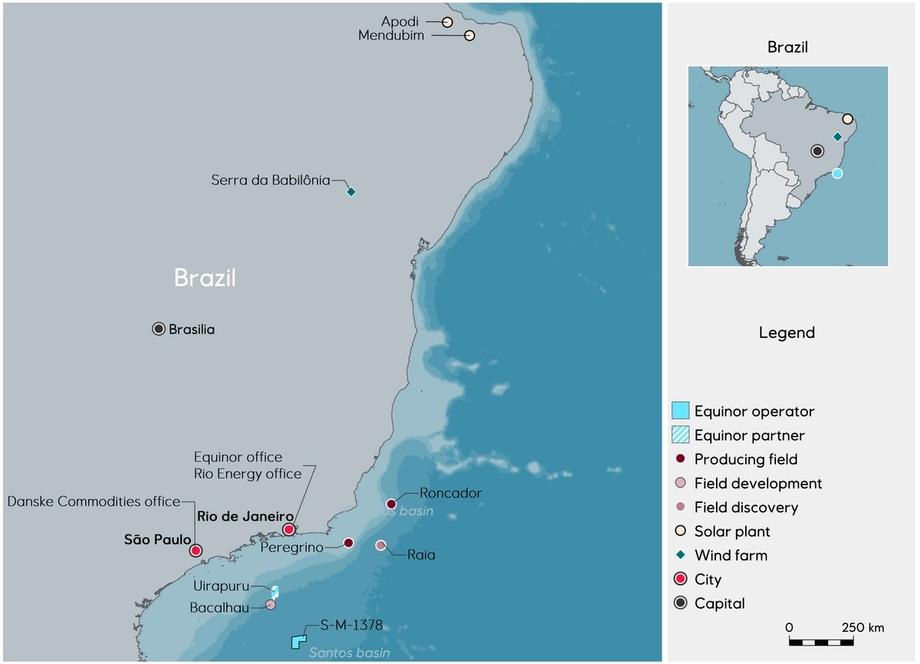We believe that onshore renewable energy is essential for our development as an energy producer. This means creating energy solutions that meet the needs of customers and the market. A central element in this approach is the commercialization of energy through our trading company, Danske Commodities, which has a trading office in São Paulo to support our activities in Brazil.
Learn more about our renewable energy portfolio in Brazil:
Apodi
Ceará, operated by Scatec (43.5%), in partnership with Equinor (43.5%) and ApodiPar (13%).
Apodi is the first solar complex in Equinor's global portfolio and began production in 2018. Apodi has a capacity of 162 MW, providing energy capable of powering 200,000 Brazilian homes.
Mendubim
Rio Grande do Norte, operated by Scatec (30%), in partnership with Equinor (30%), Hydro Rein (30%), and Alunorte (10%).
The Mendubim solar complex, with a capacity of 531 MW, started operations in 2024. Mendubim will produce 1.2 TWh of energy annually, equivalent to the consumption of 620,000 Brazilian homes.
About 60% of the production is commercialized through a 20-year power purchase agreement (PPA), in US dollars, with Alunorte, one of the leading companies in alumina supply to the global aluminum industry. The remaining production is sold in the Brazilian energy market through our trading company, Danske Commodities.
Serra da Babilônia
Bahia, operated by Rio Energy, our platform for growth in onshore renewable energy in Brazil.
The wind farms of the Serra da Babilônia 1 complex, with a capacity of 223 MW, consist of 95 wind turbines.
In 2024, Equinor announced the final investment decision for the Serra da Babilônia solar complex, which is being built in the same area as the existing Serra da Babilônia 1 wind complex. This will be Equinor's first hybrid project in the world, a model that allows for complementary wind and solar energy production at a shared location.
The Serra da Babilônia solar complex will use the existing interconnection system and will not require additional capacity from the grid. It will inject energy into the grid when the wind projects are not using their full capacity, optimizing total energy production. Commercial operations are expected to begin by the end of 2025.







